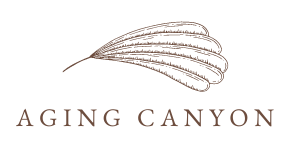Best Practices for Oral Health for Seniors
Family caregivers supporting a senior loved one need to be aware of best practices for oral health for seniors. Helping an aging loved one maintain their teeth and gums is vital to successfully aging in place. Difficulty eating due to poor daily oral care is a major driver in requiring a specialized diet for older adults.
While oral health for elderly individuals is close to the same as younger adults, let’s review the most important do’s and don’ts. Follow these basic guidelines to maintain healthy oral hygiene.
Senior Oral Hygiene Do’s
Family caregivers are often integral to the success of their loved ones. These are basic oral health suggestions that they can follow to assist their loved one to stay healthy.
- Brush teeth twice per day.
- Floss teeth every day, a floss holder makes the process easier for seniors that have difficulty holding onto the floss.
- Choose sugarless candy or gum over alternatives.
- Use gum that contains xylitol to stimulate saliva production.
Senior Oral Hygiene Don’ts
- Avoid eating foods that are high in sugar like candies or other high-sugar foods.
- Do not smoke.
- Do not chew tobacco
- Avoid excessive alcohol intake to reduce the risks of gum disease.

Oral Care Routine for Seniors
Basic oral healthcare is essential for all seniors. This routine and recommendations will help assist any seniors keep their teeth healthy and on top of any issues before they fester and become a big problem. Avoiding gum disease and tooth loss is vital for aging adults to maintain their independence.
Senior Teeth Brushing
Everyone should brush their teeth twice per day. A good rule of thumb is once in the morning when waking up and before bedtime. Many individuals prefer to brush after meals as well to keep their teeth clean of any food debris.
Senior Flossing
Use a soft bristle toothbrush along with toothpaste when brushing. Use a circular motion around each tooth to completely clean them, front and back. Brushing should take about 2 minutes. Using a glass of water swish and spit out any residual toothpaste in the mouth.
Flossing each day is an essential part of any oral care routine for seniors. Flossing at night before bed is a good time. Ultimately, this removes any food debris between the teeth and gums before sleeping for the night. Use a piece of floss or floss holders to aid in the process. Slid the floss between the and gently move them back and forth to dislodge any stuck food. Do this for all teeth. When assisting a loved one look for any bleeding in the gums and note this for future reference to discuss with the dentist during a future visit.
Healthy Teeth and Gum Best Practices
Older adults should visit the dentist twice per year. As a result, any serious issue will get addressed before they fester becoming a serious problem. Along with checking the teeth for issues will clean the teeth and gums. A visit to the dentist often also includes an application of fluoride to the teeth and helpful advice on care and maintenance specific to the persons’ teeth. Family caregivers should accompany a senior that they are responsible for to hear if there is anything to watch for and assist with their loved ones’ oral health.
The elderly should avoid high in sugar treats, candies and sticky or hard foods. These are the biggest source of potential problems that lead to cracked teeth and gum disease. Caregivers should encourage drinking water over soda and sugary drinks. Offer healthy food items like fruits, vegetables, meats, and whole grains versus processed foods laden with sugars.
Taking care of teeth and gums is essential for seniors aging in place. While it is nice to have a healthy and beautiful smile the consequence of avoiding good oral hygiene is gum disease which is known to lead to many problems.

Gum Disease Problems for Seniors
Failing to adhere to proper oral care for seniors often results in cavities or worse, gum disease. This is an issue many seniors face as they age. The gum tissue is pulled away from the tooth and exposes the base or root of the tooth. This invites bacteria into the gaps between the gums and teeth and causes inflammation and tooth decay.
Nearly 1 in 5 adults aged 65 or older have lost all of their teeth. Complete toothloss is even more common with seniors that are over the age of 75. This loss of teeth directly impacts the kinds of foods that a senior can enjoy and impacts how easy it is for them to stay independent in their own home making food to eat. Seniors that are already dealing with a chronic condition such as arthritis, heart disease, diabetes, and chronic obstructive pulmonary disease are more likely to develop gum disease.
Good health decisions throughout life and as seniors age will impact their oral hygiene.

